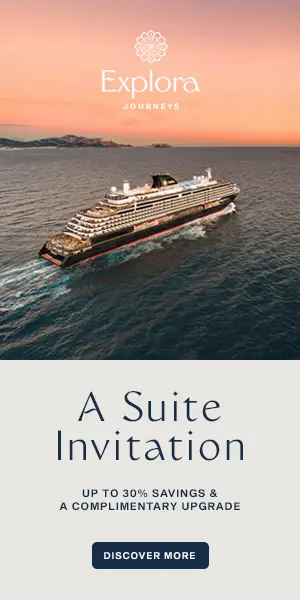How to Pick a Niche
by Dori Saltzman
Borrowing from entrepreneur Seth Godin, Patty Noonan, CTC, director of sales at The Travel Institute, encouraged travel advisor attendees at last week’s Travel Market Place East conference to discover their purple cow identity.
“What makes you that purple cow out in the field with all the other cows?”
The easiest way to do that, she said, is through specialization.
“It’s a big world out there,” she told advisors. “If you’re not focused on a particular area of the world, a particular product or a particular hobby that you’re passionate about, you’re going to struggle.”
In fact, specialization is so important that when advisors approach Noonan at trade shows complaining about how they’re struggling, the first things she does is ask, “Are you specializing?” Invariably, the answer is always no. And, that, she added, is an inefficient way of doing business.
On the other hand, when you’re a specialist in something, you can communicate confidence and excitement at a much higher level, both of which go a long way in helping convince people to book a trip.
“You all know this,” she said. “When you come back from a trip and you’re excited about it and you’re talking to your friends and suddenly they’re like ‘I want to go!’”
Being a specialist also enables you to provide clients greater value. A generalist, for example, won’t know all the secret spots to visit while on a Danube River or which spice shop in Mumbai offers shoppers free tea. But an expert in river cruising or India travel will.
Specializing helps you to not leave money on the table by giving clients full access to your knowledge and the value that your bring, which in turn lets you maximize the money you make.
Not sure how to select which niche you won’t to focus on? Noonan provided a five-step process:
1. Find Your Passion and/or Confidence
Two things should lead your search for a niche to specialize in, Noonan said: passion and confidence.
What are you passionate about that you can build a travel business around? What do you already know so well you’re confident talking about?
Disney is a perfect example she said. Lots of Disney experts get into selling Disney because they’re fans. They’ve been to the parks 10 or more times. They’ve cruise on Disney. Their family and friends called them for advice. Why not continue to do the same thing, but get paid for it?
“We’re in this business because we love to travel so why not focus in on what it is that you’re passionate about. What is it that you love? If you love it, know it and you’ve experienced it, it’s going to be that much easier to sell and get your clients excited about.”
Disney is a great example, she said, because not only is it something people are passionate about. But it requires little to no marketing, there are multiple product options under one brand (parks, hotels, cruise, etc.), it brings repeat clientele, and it’s expensive, making it a profitable niche.
Cruising in another travel style that’s often a gateway to being a travel advisor, though Noonan warned being a cruise generalist isn’t niche enough.
“Is it big ships, small ships, luxury ships? Is it adventure or family? Drill down,” she said.
But there are many others. Do you love food and travel? Combine them into a specialization, especially if you have in-depth knowledge of a particular food and destination, like Mexican or Italian cuisine.
Love chocolate? Put together chocolate tours. Love sports? Put together travel groups centered on sporting events. Love wine and have a cousin that’s a sommelier? You’ve got the passion and your cousin has the expertise to build a trip around and an audience to be marketed to.
“You can drill down and specialize in almost anything,” she said.
While Noonan emphasized being specific about your niche, she also said you don’t want to get too narrow.
“Give yourself some room to grow. It doesn’t mean you can’t sell other things but let people know that this is your area of expertise. This at least gives you that confidence and puts you in a wheelhouse that’s going to work for you.”
Noonan offered some suggestions for how to narrow down the areas you have passion and/or confidence in:
- What are your hobbies?
- What clubs or organizations are you a member of?
- What fitness or outdoor activities do you participate in?
- Where are your favorite places to visit?
- What are your favorite books, authors, magazines?
- Do you have a favorite travel supplier that you’ve traveled with multiple times?
- What are your favorite retailer stores or specialty stores?
- What local connections do you have that you can use to help develop leads? What are their special interests?
- Do you already have clients? What are their special interests?
2. Assess the Market
Once you’ve narrowed down your niche options, you’ll want to assess the marketplace. It’s all well and good to want to specialize in Disney, but is there enough room in the market for another Disney expert. (The answer to that particular question is yes, Noonan said during her presentation.)
Similarly, do you have access to an audience that is interested in that niche?
“It’s great to say I love India, I love all things about India, I want to do tours to India and then you go ‘I don’t know anyone who wants to go to India.’ … You have to have an audience, some place to market to, so be thinking about that as you’re putting together your ideas.”
For instance, maybe your parents are retired and live in an active retirement community. Perhaps, there’s an opportunity through their network of friends and social acquaintances to do some sort of group travel.
Here are eight questions to ask yourself when assessing the market:
- Is this specialty adequately served?
- How will my product or services differ from those already offered?
- How much will it cost to penetrate the market?
- How much can I depend on my current connections and word of mouth?
- How much advertising and marketing dollars will be needed?
- How easy will it be to reach my target audience?
- Will I get repeat business?
- What training will I need to get?
Wnat to know more about the benefits of specializing? Read Why Finding a Travel Niche Is Key to Success as an Advisor
3. Pick Your Partners
One type of specialization is focusing on just one or two suppliers, like with Disney. But for those who choose to focus on a destination or travel style niche, choosing which partners you work with is particularly important.
“Those partners are a reflection on you. They’re an extension of you and if you don’t have the right partner it’s going to come back to bite you… If something goes wrong and it’s not handled right, they don’t know Gianni in Italy, they know you. You’re the face of the booking and you’re going to lose the client.”
Shop around, Noonan advises. Look at reviews. Talk to other advisors. “You’ve got choices and you want to make sure that you’re aligning yourself with the right partners.”
Part of picking the right partner is educating yourself on who the operators in your niche are.
“If I’m doing river cruises in Europe, the first thing I’m going to do is look at all the river boat companies. What are they doing? Do a side-by-side analysis.”
If you’ve already got a client base – or know which type of client you plan to work with – chose the companies that align with your clients’ desires. Do they want something basic or do they want over-the-top luxury? Do they like food or are they more interested in getting out and being active?
This not only helps you make an informed decision about which partners you want to work with. It also allows you to make better recommendations and explain your recommendations so clients see your expertise at work.
“That’s the value you bring. They can look at a brochure. They can look online. But only you can read between the lines because you’ve been there or sent people on that particular product.”
4. Create a Marketing Plan
No business can be successful without marketing, but you don’t have to go crazy with it, Noonan said.
“Keep it simple. You don’t need to be spending a lot of money.”
Mostly it’s about outreach, whatever that means for you, whether that be email, social media, or in-person events. The key is to communicate your excitement over the niche you’re selling. Because, as mentioned above, excitement is contagious.
Though you’re marketing plan doesn’t have to be elaborate, Noonan did suggest that advisors get specific about who their target audience is, what their goals and objectives are, what action tasks they need to take to achieve their goals, and what their promotional strategies are.
It’d hard to know if your marketing plan is working if you haven’t first spelled it out and given yourself a set of results to measure the plan by.
5. Don’t Forget Groups
Not technically essential to picking your niche, Noonan said that building groups around your expertise is one of the best ways to grow your business.
“I don’t know how anyone can sustain it [their business] working just one-on-one.”
Group audiences travel advisors can consider include (but are in no way limited to):
- University alumni
- Golf country clubs
- Upscale residential communities
- Symphony and museum associations
- Food and wine clubs
- Philanthropic events and organizations






















